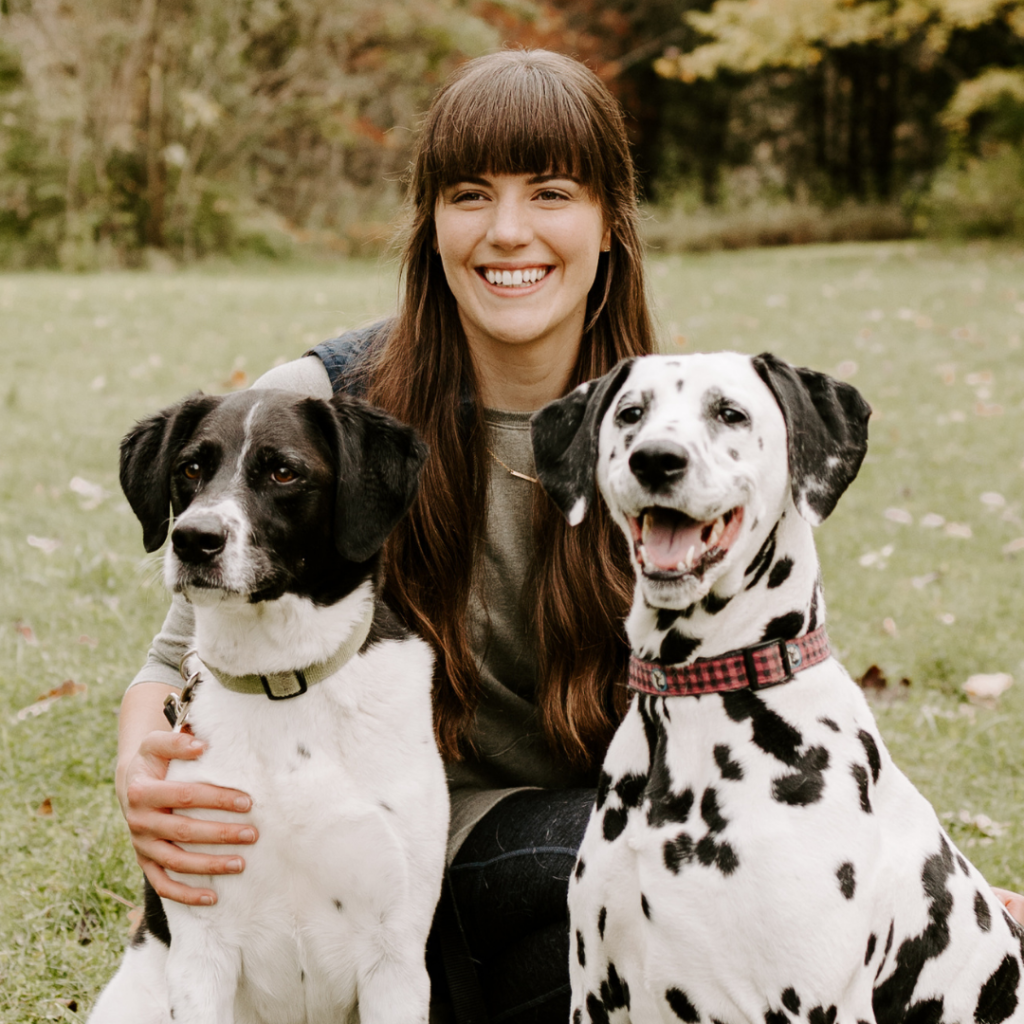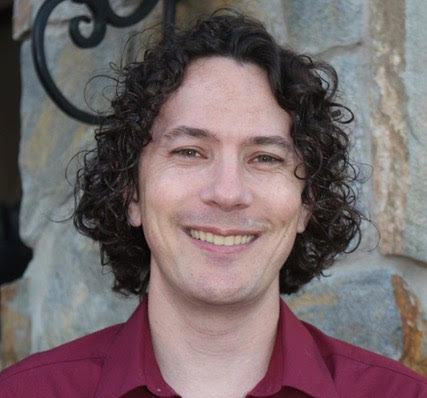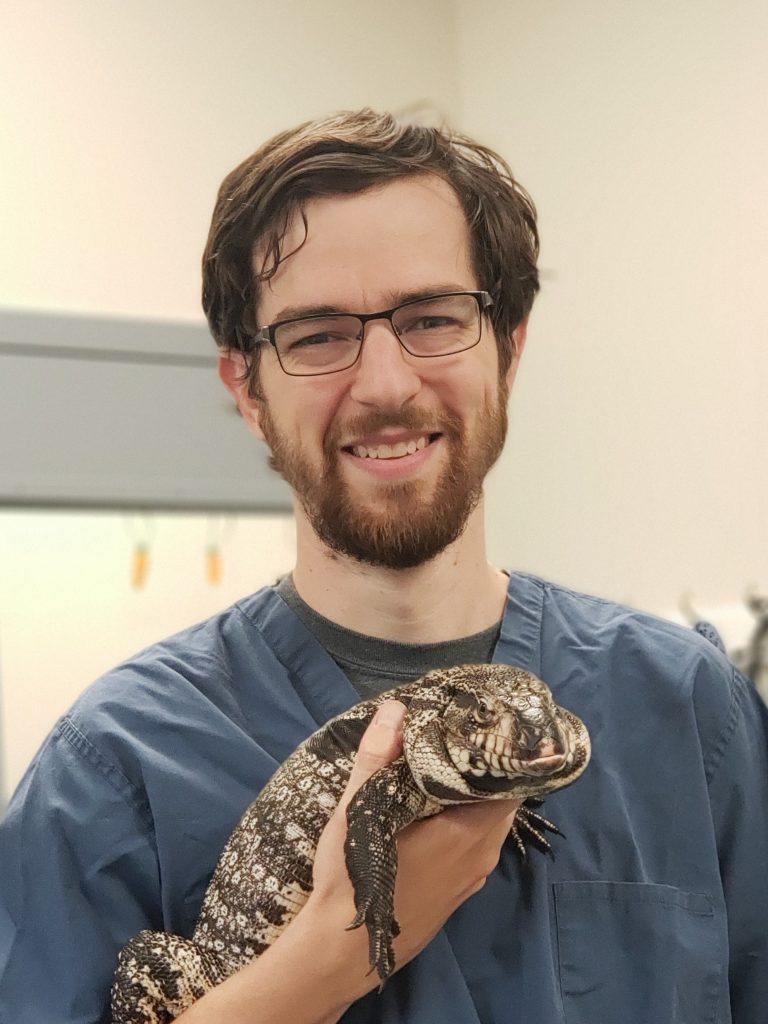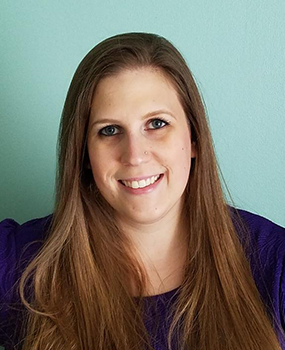In this webinar with Dr. Lauren Pagliughi, we decode lower urinary tract signs and talk about how nutrition can get your patients on the way to a better bladder!
Why I’m Leaving The Vet Clinic
Today was a big day for me. My eighteen months of maternity leave has finally come to an end and I would have been returning to work as a registered veterinary technician at the same small animal hospital I’ve been employed with for over nine years now.
But instead, I’ve chosen to take a big leap and concentrate all of my efforts on helping families adopt rescue dogs with the Pawdoption Guide Membership Experience I’ve created, whilst caring for my young family.
This is huge for me because I am such a proud RVT!
I have always loved what I do. I’ve been an advocate for my profession while regularly enjoying the pursuit of continuing education. I thought I had the coolest job in the world; as a registered veterinary technician you’re ALWAYS on your feet and you get to dabble in so many things. One minute you’re prepping and monitoring a patient in surgery, the next you’re taking x-rays, running lab work, reading cytology, or providing client education. The day-to-day work I did was everything I had dreamed of during the two years I spent obtaining my college diploma for this role.
That being said, working in a vet hospital is anything but perfect. Even though the role fulfilled me, I seriously considered leaving my vet clinic a few times during my career there. I always chose to stay for the standard of care and professionalism that they upheld. I just didn’t think anyone else could match it.
So How Did I Get Here…
In 2019 when I started my own business, Pawdoption Guide, I had no idea when or if it would become a full-time gig. I merely started it thinking that I should have a backup plan because many technicians dealt with burnout or short careers. At one point, I had heard that the average career length for vet techs was 5 years! Probably, in part, because our low salary was and is easily matched by other job opportunities. Shift work, physical demands, and clinic atmosphere most likely played a role in this too. That statistic was an eye-opener for me.
Now, there are certainly some technicians who stay in the field long term but I would not hesitate to say that the majority of them don’t have children. Unfortunately, veterinary medicine is not an easy field to be in while raising children and my priorities changed quickly with the birth of my two kids.
I realized how much time I would be sacrificing with them if I worked the rotating shifts of an RVT. There would be weeks at a time where I wouldn’t see my kids following dropping them off at daycare in the morning. I decided I wasn’t okay with this.
Let me be the first to acknowledge my privilege to be able to make a choice like that or even have the financial stability to do so. I am very fortunate.
When I went back to work following my first maternity leave, I was able to negotiate a stable work schedule with no rotation. However, in doing so, I had to relinquish most of my participation in surgery duties. This was almost unthinkable for me, my identity as a vet tech was wrapped up in this aspect of my work, yet I gave it up because I could not imagine the alternative.
It was definitely the right choice for me and I got used to the new norm but my job no longer held the balance and satisfaction that it once had. This, along with a second child was really the tipping point for my in-clinic career.
At this point, I was creating a lot of free resources and courses to empower dog adopters in their dog adoption journey, and completing each one of them enlivened my passion for dog rescue and adoption. I could never have imagined being so fulfilled by something other than my RVT duties in an animal hospital. So, with this personal growth came the awareness that I must continue to pursue this new passion.
The nail in the coffin, so to say, was when I set out to write my resignation letter. I did what most people do and googled “resignation letter template.” The template I came across looked great and had all the necessities, plus a few optional things. One of them is to mention a memorable achievement, big accomplishment, or highlight of your career.
I thought, “Sure, how hard could that be?” Well, I must’ve sat on that question for hours, maybe even days. I just kept reliving my 9 years as an RVT at this small animal hospital and all of the opportunities where I showed initiative, leadership or brought something to fruition. I thought of many things but I could not find even one thing that felt worthy of that title. Not one. Every example that came close had a mental asterisk beside it for one reason or another. The truth is, as a veterinary technician you do so many tasks. The accomplishments are many, yet that’s all expected of you. The authority to see projects or tasks through the way you may want to is seldomly possible. The vet or boss is always overseeing you and has the final say.
For me, it was suddenly and overwhelmingly clear that although I enjoyed the tasks I performed as a tech I was left feeling unrewarded because I didn’t feel I could take full responsibility for my accomplishments. I wanted the ability to lead, not just contribute.
I don’t want you to get the wrong idea and think that I resent my workplace for this revelation. I honestly don’t think I would have had a different result recalling a 9-year career at any other clinic. The really joyous or impactful memories for me all surrounded the camaraderie I experienced as a team or with my individual colleagues.
It just comes down to the role description of a registered veterinary technician which is to work alongside and assist the veterinarian. This was no longer serving me.
In comparison, with just 2 years under my belt as an entrepreneur, I can name 10 things or more that I’m immensely proud of accomplishing and have provided me with personal and professional growth. That resignation letter gave me the clarity I needed to turn my side-hustle into a full-time gig while confidently leaving my in-clinic vet-tech career. Entrepreneurship is undoubtedly the way onward and upward for me as an RVT.

About the Author:
Bethany Muir is a seasoned RVT from Kitchener, ON Canada, who is passionate about rescuing pets. She proudly uses her RVT skills to empower dog adopters in locating, adopting, and integrating their dream rescue dog via her Pawdoption Guide Membership Experience. Find out more by listening to weekly episodes of the Pawdoption Guide Podcast or visiting her website.
“Dad Jokes Told Here”
Have you ever felt that someone got you, like truly, deeply, at your core got you? You see, I have a superpower. Not the kind that headlines a major motion picture, or gets me on the B-list of the Avengers, or even their trusty sidekick. My superpower would qualify me for the Suicide Squad, and not one who actually makes it to the end of the movie, the ones who are the distraction and the comic relief.
My superpower, yes, I believe it is one, is popsicle stick humor. I could have paid my way through veterinary school writing those popsicle sticks, and that is at today’s vet school costs. Not only can I instantaneously come up with a lame pun or joke, like cruciate tear lame, but I can give 5 back to back puns on topic. Clinics I have worked at have call any lame joke or pun, a “Sweitzer Joke.” I have had pun-offs for fun. My friend once drew a cartoon of my brain with tons of filing cabinets, the size of the library of congress, filled with jokes and Olympic-level sprinters running around retrieving them. I felt sorry for those poor individuals as they were being worked as hard as grad students or interns (a topic for another time).

Some people appreciate my puns as they make the day go faster and lighten the emotional load of veterinary medicine. Some people tolerate my puns as part of accepting me. My current boss may roll her eyes sometimes and will giggle or chuckle at others, did something that speaks to my core, my superpower. She hung the following sign on the door to our doctor’s office. The feeling of being understood, and appreciated, is so fulfilling. The feeling of being truly understood and appreciated, by your boss, PRICELESS (Though I think she bought the sign with VISA).
So often our brain focuses on our weaknesses, on our mistakes, and on what went wrong. We naturally all have a strong negativity bias so we can survive the sabretooth tiger around the next corner. The monsters of life may take many forms but the worst monster is our own mind. While trying to improve our flaws and avoid our mistakes may help us not to fail, but punishment rarely pushes us to the pinnacles of mental success. Reinforcement motivates us to continue our current efforts and pushes us to greater heights. Being not only accepted but celebrated for who you are is an incredible feeling and amazingly fulfilling.
So, what is your core strength, your superpower? Was there a time that you felt truly understood and appreciated? A time when you did something for someone else to make sure they knew how much you appreciate them.

ABOUT THE AUTHOR
Dr. Jason Sweitzer has worked in veterinary medicine for two decades from assistant, to RVT, to DVM. He graduated from UC Davis with his DVM in 2009 with focuses on small and exotic animals, behavior, and business management. He has worked in general and specialty emergency practices as well as having been an Intern and Extern Director for one of the largest veterinary clinics in the country. He loves teaching and incorporating animal behavior and mental wellness into all that he does and sits on the Western University Dean’s Clinical Site Advisory Counsel. He was a founding board member of Not One More Vet, Inc, and founded Not One More Vet Student. a non-profit devoted to mental health and suicide prevention in veterinary medicine including more than 20,000 veterinary professionals. He has lectured nationally on several topics. He believes laughter is the best medicine and proudly shares his “Dad” jokes.
Applying Braces in an Uncertain World
I have a confession that I’m not proud of: This week I went through my first round of serious coronavirus-related anxiety. Even though I’ve been living in a country with the disease for over 2 months, I let my guard down and let my anxiety get the best of me this week.
Some background: My wife and I moved from New Jersey to Hong Kong in August of 2019 to work in a growing private practice. We arrived exactly one week after the Hong Kong airport shut down from national protests. And luckily, the protests haven’t impacted us much other than changing or plans some weekends.
By late December, we started hearing rumors of a new respiratory virus in China, and by January Hong Kong was in full national response mode- partially shutting down the border with China, shutting down government-run parks and buildings, and providing guidelines for citizens to avoid potential exposure (which amounted to what we now call social distancing). By the end of January, rumors had started that the Chinese government would cut off the supply of paper goods like toilet paper to Hong Kong, which induced panic buying – we couldn’t find any toilet paper, cleaning products or hand sanitizer for about one month (and now they are everywhere – hope is coming for you as well!).
But none of that seemed to bother me. Things would keep moving along, and we could handle them. Until this week – COVID-19 started to take hold in the US, and specifically in NJ and NY where my friends, family, and former co-workers were located. I suddenly found myself with a mounting anxiety for their wellbeing, something I could do nothing about. I watched as former coworkers were temporarily laid off due to uncertainty and emergency cost-saving measures. Coupled with a week of difficult cases, it was enough to push me to the limit. I found myself doubting my abilities as a vet, distancing myself from others mentally, and even missing some deadlines on projects.
It’s a situation I’ve never been in before and my mind went into overload and partial shutdown. I luckily have a great support system in my wife and close friends who helped me rebound, but I don’t want it to happen again, or happen to anyone else.
So what do you do when you face a situation as you’ve never been in before? You can start by applying what I call BRACES to your day to keep everything together as things seem to be falling apart:
1. Breathe. Take a minute, collect your thoughts. You still have responsibilities to people and to animals who need you, but they need you to think clearly. In a time where situations can change hour to hour (or seemingly minute to minute) don’t get caught up in the endless barrage of news and fear. Give yourself time to react rationally.
2. Recharge yourself. Take the time to recharge and re-energize. In a time where it feels like you are being pulled in hundreds of directions at once, you still need to take time to fulfill your needs. Taking time off from work mentally is vital for your long-term health and has even shown to improve your quality of work. Schedule your recharge time like you schedule appointments and stick to it.
3. Acknowledge the uncertainty. There is no getting around the fact that we live in uncertain times. We are currently at a point where we can’t say what tomorrow will look like, let alone next week or next year. Acknowledging this fact, but not letting yourself be paralyzed by it, is essential. As veterinarians, we are almost uniquely prepared for changing situations and chaos. Adopting the mindset to change and adapt based on the current facts will improve your decision-making abilities and improve your long-term results.
4. Clarify. Provide clarity and certainty where possible. Now that you know that things outside of your control could change over time, start to focus on the things you can control. Be mindful of your reactions to the news and to other information. Where possible, provide clarity to your staff as well – they are looking for guidance and some level of security in this time. Discuss your daily procedures with them and be sure to effectively communicate any changes as needed.
5. Establish a routine. Take control of your days by planning in advance. You don’t need a minute by minute schedule, but block the amount of time you will spend at work, how much personal recharge time you need, how much time you will be on social media/catching up on the news, how much Netflix you will watch, etc. Setting a schedule before you start these activities will keep you from falling into the time-sucking black hole of social media or Netflix binging. Taking control of your daily routine is a great way to add some certainty to your day in an uncertain world. To-do lists are also a great way to keep on track with larger projects
6. Stay connected to others. Just because you are physically separated from others, doesn’t mean you have to mentally or emotionally be separated. More than ever, take the time to talk and connect to your friends and family. We are all in this together. Even half a world away, it’s been comforting to receive a text or call from family or friends to talk about what we are all going through.
I know these things are easier said than done, and I know I’ve failed at them from time to time. But the important thing to remember is that there are always ways to improve our situation. We are all in a position now, both personally and professionally, that we haven’t experienced before. But with this change, we have the chance to shape our profession to be even better and stronger than it was before.
And finally, although times are trying and it can be difficult, make sure to keep your mind sharp and occupied. If your plans are altered and you have extra time, take that online CE course or read those journal articles you have been putting off. Or make it a priority to pick up that new hobby you wanted to start but never had the time (mine is photography). Or just take the time to connect with your family/spouse/pets in a way that you haven’t been able to because of work. Do whatever you need to do to keep from falling into the cycle of fear and despair that comes with mounting uncertainty.
And above all, stay safe and healthy.
The views and opinions expressed in this article are those of the author and do not necessarily reflect the position of the DrAndyRoark.com editorial team.

ABOUT THE AUTHOR
Colin McDermott, VMD, CertAqV is a New Jersey native but is currently working at a private practice in Hong Kong. He graduated from the University of Pennsylvania School of Veterinary Medicine in 2011, and has undergone further training and has been seeing exotics patients ever since. In addition to his special interests in fish and reptile medicine, he has become more interested in practice management and bringing out the best in all veterinary staff members. When not in the clinic, he and his wife enjoy hiking, camping and exploring the new food options in Hong Kong.
The Power of TLC: Cujo’s Story
Being a Licensed Veterinary Technician working in a small animal and exotic practice for over a decade I’ve seen my fair share of ill exotic pets over the years. So, when an appointment popped up on the schedule for a leopard gecko with an abnormal tail, I prepared like I would for any other exotic appointment. I mentally readied myself for the husbandry discussion, printed all the care handouts, grabbed the gram scale, and walked into the room. I was reminded that day no matter how long you have been in this field, always expect the unexpected.
This was not your average gecko; he was emaciated, dehydrated, covered in retained shed skin, squinting eyes, and was dragging a completely necrotic tail. It was clear he was in desperate need of a tail amputation surgery and supportive care. So, an arrangement was made, he was signed over into our care and surgery was scheduled for the following day.
Surgery was a success, and the next step was for the frail leopard gecko to receive rehabilitation and I was the natural choice after successfully rehabilitating and re-homing several reptiles in the past; I thought this experience would be no different. I brought him home that night with a bag of medications to temporarily join my zoo and began the process of daily charting, photo-taking, and inspecting his every move. He started a drug regime of pain medication and antibiotics, daily soakings to correct his dehydration, as well as perfecting his cage temperature, lighting, and humidity. During this time, he refused to chase his prey (crickets and other bugs) so I was forced to hand feed him daily.
It was miraculous how quickly his tail begun to repair itself! As he healed this frail leopard gecko became feisty! Every time I touched him to feed him, give him medications or inspect his amputation site he would give it his best attempt to bite me. Lovingly I gave him the only name that fit, Cujo. As time went on and I continued his care, Cujo mellowed. Maybe because he felt better not having that tail behind him, maybe the pain medications were working, maybe he loved the sound of my voice (he would perk up when he heard me talking to him) or maybe it was consistent confident handling. But within a few weeks, Cujo became more of an ironic name, because now he is the sweetest leopard gecko you will ever meet!
As the weeks passed, I was able to discontinue the medications as his tail grew and healed. He spent a lot of time in his humidity house and with every shed his color became brighter and brighter. An eye flush with saline and a course of antibiotic eye drops did the trick to stop his squinting. His eyes then appeared normal, however, he still did not chase his prey and walked with more caution than a leopard gecko should. This is when I came to the daunting realization that I had a visually impaired leopard gecko that would require hand-feeding for life.
Now I had mentioned before that I have successfully rehabilitated and re-homed many reptiles over the years. And I was not looking for any more pets when I started this journey, especially not a leopard gecko. But there is something special about Cujo. After weeks of nursing him, seeing him perk up when he heard my voice, carrying him around on my shoulder so he can supervise my care of the other animals; I was growing attached to this little guy. And I started thinking, who would want a half tailed, partially blind gecko that would have to be hand-fed for life anyways?
It has been two years now and Cujo’s tail has grown back thick and fat (regrown tails are never the same as a leopard gecko’s original tail), his color is bright tangerine orange, and he is fat, happy and healthy. I’m sure you can guess how this story ends, Cujo now lives happily with me in my zoo. I started this journey with a scrawny, dehydrated, honestly pathetic looking leopard gecko, and with a lot of TLC ended up with a beautifully perfect Cujo!
The views and opinions expressed in this article are those of the author and do not necessarily reflect the position of the DrAndyRoark.com editorial team.

ABOUT THE AUTHOR
My name is Nicole Harchuk I am a Licensed Veterinary Technician working in small animal and exotic practice. My favorite part of my job is the opportunity to educate and share my passion for veterinary medicine. I also enjoy traveling and attending conferences and continuing education classes to expand my knowledge. Additionally, I recently started back to school to pursue a Bachelor’s degree in Management. In my spare time, I enjoy caring for my “zoo” of reptiles and Poonchkei the orange tabby cat, as well as, scrapbooking, reading, and spending time with friends.
A Random Act of Kindness
I received a random act of kindness that profoundly changed my life. And it happened in one of what is probably the unlikelier places for it: the parking garage of the Philadelphia International Airport. I know my home city’s reputation – perhaps epitomized by the image of Philadelphia Eagles fans throwing snowballs at the guy playing Santa Claus at halftime – and I am somewhat a product of it. Philly is tough, gritty, and as unglamorous as you imagine. The airport parking garage is, well, probably exactly what you expect except maybe a little dirtier.
I was in maybe my last year of veterinary school, walking out of the airport with a bag over my shoulder and I was nearing my car. I saw a family struggling to get their luggage into the car next to mine. I waited for them to sort it out. I waited and waited. And waited. There was probably also some scowling during this time. And three or four crop rotations later when they went to get their last bag into the car, they knocked the bag over into my car, leaving a scratch in the paint. With a heavy sigh and a practiced scowl, I approached the father of the family and pointed out that he’d dinged my car. He turned around, didn’t bother to look at the damage to my car, and said, “I’m sorry, my mistake, will this cover it?” And handed me a $50 bill. I blinked, as his response had left me in such a state of surprise that blinking was about the highest mental function I could muster, and then I proceeded to be very confused. He smiled, “If that won’t, here’s more.” Another $50. “Okay?”
I’m not sure I managed to make any sounds that could be considered words but I might’ve nodded. It’s kind of blurry when your brain’s gears grind like that. “Great,” he said, “I’m sorry about that. Have a blessed day!” And they drove off, leaving me to mentally muddle through the last few minutes’ events. The guy and his family were probably home and had their luggage unpacked by the time I figured out what the daylights had just happened.
In five seconds that guy changed my life. If you’d asked me to rank my expectations for this encounter, his response would’ve been on page 17 several slots down from “Grow giant bat wings and fly away” and “Turn into a clove of garlic.” His kindness threw into sharp relief what an unmitigated jerk I’d been – and not just for the last ten minutes. He showed me that my attitude was just awful. I just stood there, I should’ve offered to help. They were struggling and I didn’t do a thing about it. It would’ve been easy for me to help, I could’ve tossed those bags around like tennis balls, and I just watched. Instead of helping, I stood there and then I picked a fight. Instead of picking a fight, I should’ve just let it go – it’s not like I’d fixed any other dent or scratch on that old car. All the things I should have done better were right in front of me. I hadn’t done anything right, anything to be proud of.
This guy showed me I was quite probably not being a very good person, and he did it with a deft, effortless act of kindness that came as naturally to him as scowling did to me. I imagine it was a long flight, hard travel, bad time in my life, whatever other excuses to behaving as I had, but they were just embarrassing excuses. This random act of kindness didn’t make me feel good, it made me feel awful. Because I was. And I’m incredibly, deeply, profoundly grateful that somebody managed to point it out to me.
The person I was and the person I wanted to be had never been further apart than at that moment, and that guy changed my life by showing me the distance between those two people. I can think of no single moment that motivated me to change my life more powerful than the guy in the parking garage of the Philadelphia International Airport.
The views and opinions expressed in this article are those of the author and do not necessarily reflect the position of the DrAndyRoark.com editorial team.

ABOUT THE AUTHOR
William Tancredi is a small animal veterinarian in southeastern Pennsylvania, where he operates Old Ridge Veterinary Services. His pastimes include reading, spending time with his animals, and he’s getting better at being nicer to people in parking garages.